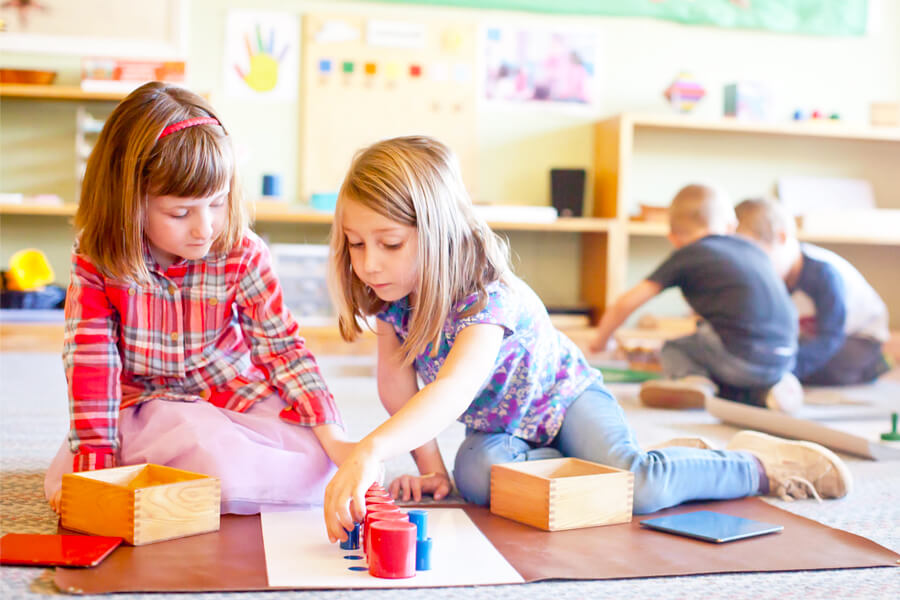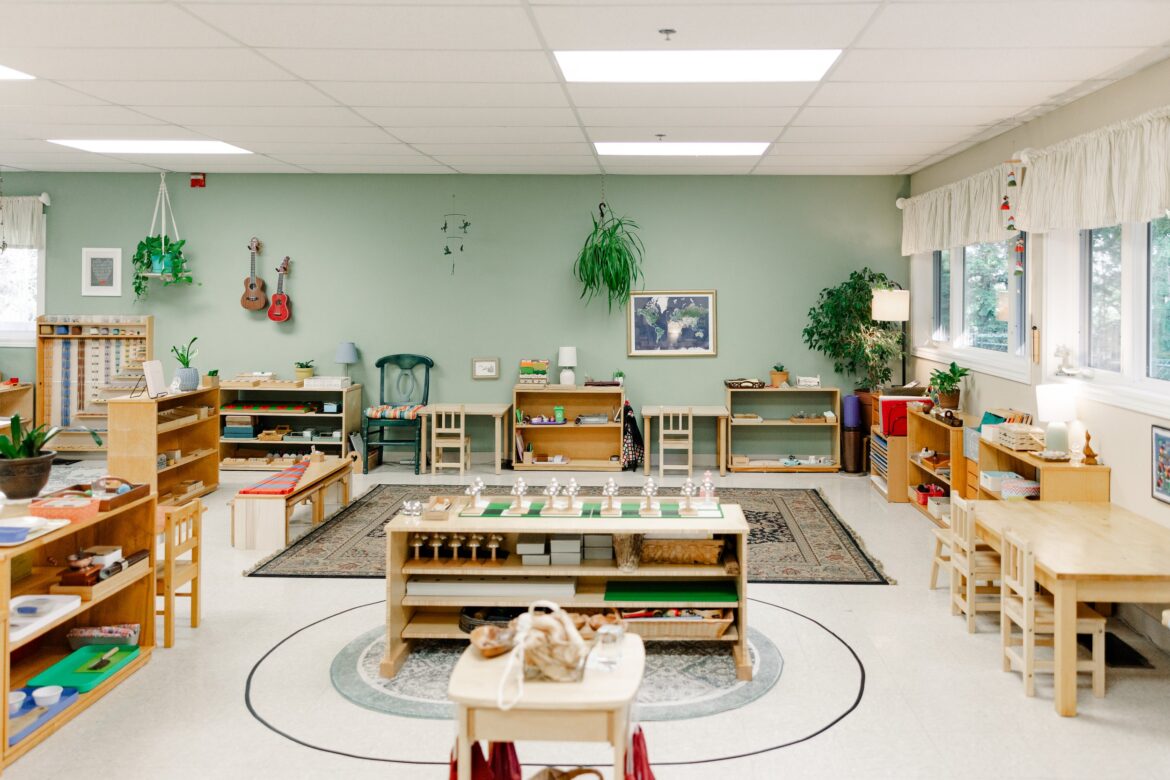Montessori education is special. It is different from the traditional learning in regular schools. Students here are taught about independence and creativity. Self-directed learning is the focus of Montessori. There is individualized instruction where a child is encouraged to learn at their own pace.
Several factors make a montessori school different from conventional teaching. The following can help parents consider Montessori education.
Child-Centered Teaching Approach
Montessori education is unique. It is focused on a child-centered approach. Teachers guide, monitor, and assist each child instead of teaching them. They support the child’s learning journey. The learning environment here lets kids choose activities and study at their own speed. This freedom encourages the students to be independent and responsible.
Hands-On Learning
Montessori classrooms have hands-on learning materials. This lets kids discover, explore, and solve their problems. Montessori tools help kids learn complicated topics through tangible examples. The hands-on approach is quite unique compared to traditional teaching. Students do not have to focus on memorization and passive learning. Instead, they learn by experience.
Mixed-Age Classes
This type of class makes Montessori education stand out. This program is unique in its own way. It is nothing similar to regular teachings in school. This framework allows older children to teach younger ones. Mixed-age groups improve collaboration and foster leadership. This encourages kids to work together. Teachers can also adapt their lessons to each child’s needs based on their age.

Focus on Developmental Stages
Montessori understands that children develop in stages. This is where the methods of teaching should be based. This is tailored to the needs of each child. It considers the child’s abilities and traits. Early childhood development focuses on developing fine motor abilities and sensory awareness. Older kids may acquire creative thinking and problem-solving skills through experience. Montessori can personalize their teachings to fit the child’s natural development.
Social and Emotional Learning
Montessori emphasizes social and emotional development along with academic performance. Students learn to respect and cooperate with others. They also learn to resolve disagreements themselves. Practical life skills are important, and they are taught in Montessori schools. Kids need to learn how to excel in both academics and life.
Develop a Love of Learning
Montessori education encourages self-motivation. Teachers let students learn topics that interest them the most. This allows them to learn independently. Montessori doesn’t push students to achieve by giving rewards. Instead, it focuses on nurturing the joy of learning. This makes kids interested in learning more complicated lessons. This will be an advantage as they move up to big schools. There will be more challenges that they have to -prepare for. And developing a love for learning will bring more benefits to the young students.
Conclusion
Montessori education is different from regular learning. All will work together to ensure the child develops holistically. Kids can learn at their own pace without pressure. Students can easily reach their full potential. This can prepare them for future educational challenges. Consider all these before you decide to enroll your child in a Montessori school.




